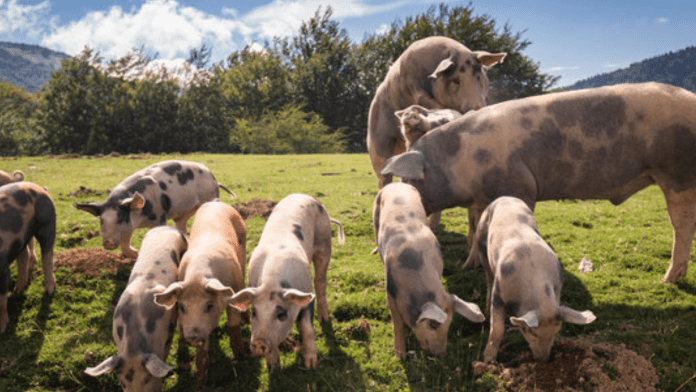News in Brief:
– The European Parliament has approved an updated Industrial Emissions Directive (IED) that impacts large pig and poultry farms in a bid for cleaner air.
– It will go into effective in 2030 and introduces new thresholds for livestock units, penalties for non-compliance, and potential future expansion to include cattle farms.
The European Parliament’s recent approval of the updated Industrial Emissions Directive (IED) is set to shake up the livestock farming landscape, with significant implications for local farmers.
In a decisive move, the Parliament backed the IED with 393 votes in favor, 173 against, and 49 abstentions, according to a news report. This legislation aims to enforce clean air and water regulations on large pig and poultry farms.
Industrial emissions directive addresses farmers’ concerns
Led by Benoît Lutgen from the conservative European Peopleâs Party (EPP), right-wing lawmakers pushed for additional amendments to alleviate provisions affecting the livestock sector. This move reflects a broader effort to reduce administrative burdens on businesses, particularly European farmers.
The new rules, set to take effect from 2030, will affect pig farms with more than 350 livestock units (LSU), equivalent to around 1,100 adult pigs and 700 sows. Poultry farms will also see changes, with thresholds adjusted for both meat and egg production.
Companies found in violation of the regulations could face penalties of at least 3% of their annual EU turnover, underlining the seriousness of compliance. Additionally, citizens affected by breaches may seek compensation for health damages. The Commission is tasked with evaluating whether the directive should extend to cattle farms by December 2026, signaling a potential expansion of regulations in the future.
Mixed reactions to the livestock emissions regulation
While environmental groups welcomed the Parliament’s endorsement of the IED, they expressed disappointment in its lack of ambition. Critics argue that the directive falls short in addressing the pollution generated by intensive farming, highlighting the need for further action.
Local farmers, particularly those involved in family-owned operations, have raised concerns about the potential impact of the legislation on their livelihoods. The debate underscores the delicate balance between environmental protection and supporting agricultural communities.



